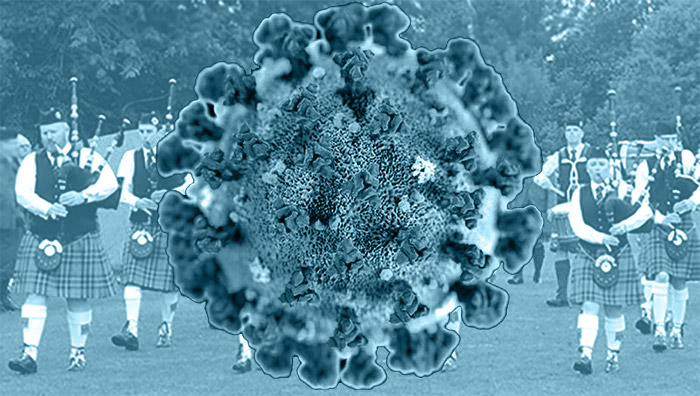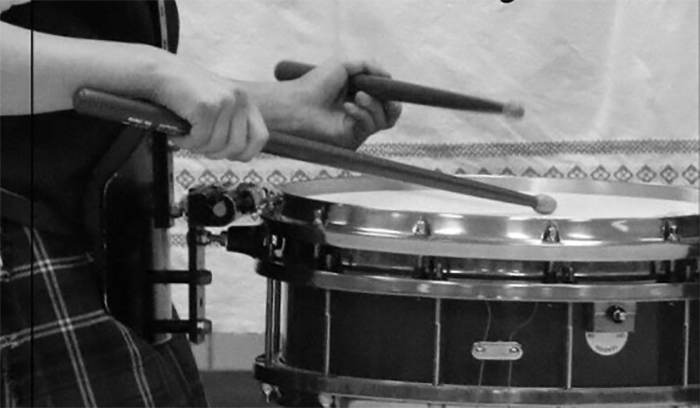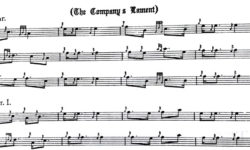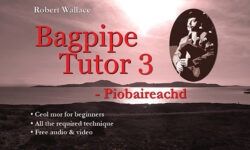
The bagpipe if not kept clean could be a source of bacteria and virus infections. There are disinfectants avaiIable, but care should be taken as they could be corrosive, writes Duncan Watson.
As a matter of interest, I have been using hydrogen peroxide for years on reeds. It kills bacteria and a little research I have read shows it can deal with viruses.
The reason that I used it was because I learned that musicians such as bassoonists have used weak solutions of hydrogen peroxide to combat their reeds rotting.
Being mouth blown and subjected directly to saliva which contains enzymes, it is common problem for them. Hydrogen peroxide can definitely prolong the life of reeds.
I have had reeds lasting for three to five years at times (not good for sales!). It is worth doing some personal research via the internet to obtain supplies. It can be purchased in small bottles in varying strength from three to about 9% and is relatively cheap.
Care has to be taken when handling cane when it is wet with it as it causes a bit of bleaching to the skin.
An online amateur snare drumming contest has been organised in the US by the Buffalo Scottish Arts School. The date is April 25. Here’s the link.

Thought of learning piobaireachd during ther lockdown? Get a copy of our editor Robert Wallace’s super tutor book and you can’t go wrong.
He’s also recorded a series of ‘play along’ lessons on tunes suitable for beginners. What are you waiting for?
Don’t forget the PP Lockdown Challenge. Entries for the first challenge close on April 30. Send your piping paintings/ drawings/ bagpipe essays/ new tunes as jpegs/pdfs to pipingpress@gmail.com.
The essays should be circa 1,000 – slightly over or under is no problem. The tunes can have an audio file accompaniment. We’ll have all entries judged and prizes awarded.

















When making reeds initially the cane has to be soaked, otherwise the blades will spilt when tying them onto the staple. That is what I have to do anyway. It was a man called Sam Brown who resided in Johnston, Renfrew who showed me the reed making and he wet the cane with water. Sadly Sam is no longer with us. As all who make reeds do, I did a bit of simple research looking at other types of double beating bladed reeds and that is how I came across the use of hydrogen peroxide. Doubtless there might be other substances which are suitable. I have experimented with other solutions with poor or poorer results, ruining reeds! Moisture control etc pushes into trying various ways of controlling sound and preserving the reeds.
However, having soaked the cane with the hydrogen peroxide at the early stages, it might prevent early rotting or deterioration of the cane. Being what is described as a wet blower, my reeds can discolour indicating early rotting and at that stage, I have used as described a tiny artist type brush and paint the blades with the solution, without necessarily soaking the cane. Soaking the cane of a reed which has been made for a while might cause distortion of the cane and ruin the reed and you don’t want that. At this sort of stage it is in effort to extend the life of a good reed, as they are so precious! There is one thing more precious to a piper– the wind and his ability to blow!
Added info. I have usually got hydrogen peroxide from local chemists. Using a tiny artist brush is ideal to apply the solution to the cane. There is no need to soak the cane.
Thanks Duncan. That’s very helpful. Just wondering if you do this regularly to a reed once you’ve start playing it or if it is a one off treatment? And if regular, how frequently you apply the Hydrogen Peroxide.
Hi Duncan
I’d be interested to hear how you use the Hydrogen Peroxide. I use it on a new reed, dipping the reed in a 9% Hydrogen Peroxide solution, diluted to half that strength (ie 50% water and 50% of the Hydrogen Peroxide). However, I tend not to re-do this once I have started playing the reed. I presume, based on what you’re saying, that you treat it fairly frequently.
Yours in anticaption,
James